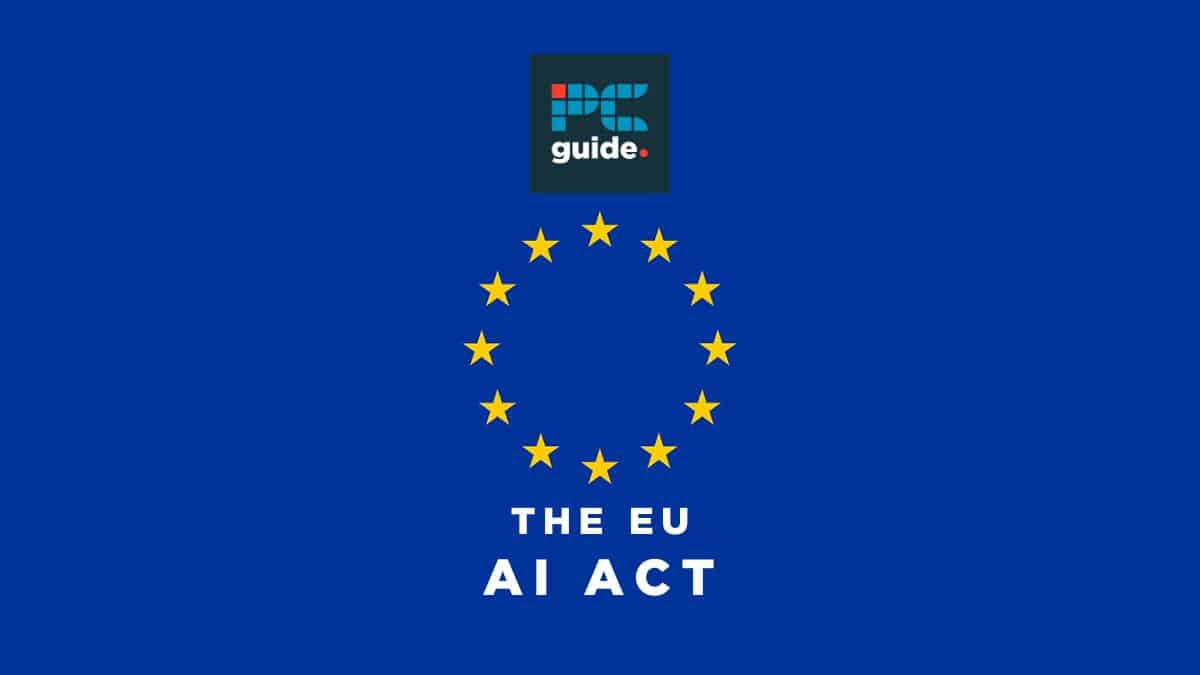EU AI Act confirmed by European Commission in historic agreement

The European Commission and European Government have reached an agreement regarding AI (Artificial Intelligence) regulation. Ursula von der Leyen, President of the European Commission, has made a hopeful statement following the establishment of the EU AI Act, proposed in April 2021.
Commission welcomes political agreement on Artificial Intelligence Act
The new EU AI Act aims to accomplish important goals that we should all hope can co-exist; To keep humans safe, on an individual and societal level, while also encouraging industry and the development of useful artificial intelligence.
This draft agreement concludes a string of proposed safety measures and transparency requirement imposed by policymakers and negotiators since 2018. The European Strategy on AI was first published in 2018, followed by the Guidelines for Trustworthy AI in 2019, and an Assessment List for Trustworthy AI in 2020, both published by the High-Level Expert Group on Artificial Intelligence (HLEG).
More recently, we’ve seen US President Biden issue an executive order, similar to the EU AI Act, but in how these matters will affect the United States. In the UK, Prime Minister Rishi Sunak called an inaugural AI Safety Summit just days later. Also this year, we’ve seen the formation of the Frontier Models Forum, a governing body for technical oversight between tech giants Google, Microsoft, Anthropic, and OpenAI. These firms will of course employ individuals who understand the science of emerging technology in far greater detail than the lawmakers of the government that oversees them.
EU Commission to establish AI Office this January
The EU AI Act is a landmark law in the field of artificial intelligence. This newly established AI Office will be crucial in the enforcement of the AI Act.
In December of 2023, the European Parliament concluded how AI should be governed. The agreement, mainly concerning a political view and moral responsibility to act, still needs enforcement. The AI Office will centralize the response to any breaches of the AI Act across the European Union. Practically speaking, the enforcement ‘agency’ will be integrated into the European Commission in late January, ahead of the formal adoption of the EU AI Act into law.
Essential AI Tools
What is included in the EU AI Act?
The AI act has not yet been codified into law and is not yet written in legal language. However, the principles and priorities are clear.
Trustworthy artificial intelligence (AI) can bring many benefits, such as better healthcare, safer and cleaner transport, more efficient manufacturing, and cheaper and more sustainable energy. The EU's approach to AI will give people the confidence to embrace these technologies while encouraging businesses to develop them.
European Commission
Strictness of regulation will be categorized by the following levels of risk:
- Unacceptable risk: “Anything considered a clear threat to EU citizens will be banned.”
- High-risk: Critical public infrastructure, education, safety products, employment, law enforcement, and the administration of justice will receive continual human oversight. These areas will be subject to the strictest vetting process before AI can be used, if at all.
- Limited risk: “AI systems such as chatbots are subject to minimal transparency obligations, intended to allow those interacting with the content to make informed decisions.” In other words, there may be some grey area, but the risk is low enough that the individual can be trusted to use it safely, like owning a kitchen knife in your own home.
- Minimal risk: “Free use of applications such as AI-enabled video games or spam filters. The vast majority of AI systems falls into this category where the new rules do not intervene as these systems represent only minimal or no risk for citizen's rights or safety.” In many of these cases, the AI will purposefully make things safer, as in cases of censorship of harmful language in online video games. As most artificial intelligence systems are categorized as minimal risk, most AI systems will have zero oversight from the European Union.
FAQ
What did Ursula von der Leyen, President of the European Commission, say regarding the EU AI Act?
Ursula von der Leyen, President of the European Commission, made the statement the following statement following the accord.
“Artificial intelligence is already changing our everyday lives. And this is just the beginning. Used wisely and widely, AI promises huge benefits to our economy and society. Therefore, I very much welcome today’s political agreement by the European Parliament and the Council on the Artificial Intelligence Act. The EU’s AI Act is the first-ever comprehensive legal framework on Artificial Intelligence worldwide. So, this is a historic moment. The AI Act transposes European values to a new era. By focusing regulation on identifiable risks, today’s agreement will foster responsible innovation in Europe. By guaranteeing the safety and fundamental rights of people and businesses, it will support the development, deployment and take-up of trustworthy AI in the EU. Our AI Act will make a substantial contribution to the development of global rules and principles for human-centric AI.”
